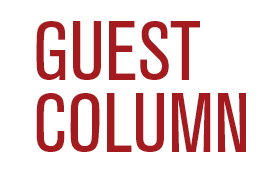Last week our newspaper included significant pieces of information about the EP water project – stories, a guest column opposed to the project and a paid advertisement in favor of EP.
Several readers complained about the Hays Free Press accepting the ad, with some calling it unethical. Our policy for news, opinions and advertising is straightforward, and the decisions to print these were in keeping with journalistic standards, our guidelines and community ethics.
We’ve been running news stories on EP for months. These are written by Hays Free Press staff writers, with the goal to provide unvarnished truth about what’s happening, presented in a “neutral,” or at least a fair way. Our reporters have no direct financial interest in the outcome of the story, nor does the Hays Free Press.
We’ve also run letter to the editor from folks on both sides of the issue, showing that there is no neutral ground when it comes to EP.
These columns and letters, of course, appeared on the Opinion page, as they were definitely opinions of the writers, but neither were they paid advertisements. Some readers might not understand that we run a wide range of letters to the editor, and guest views, not because there is any law that says we must, but because we believe printing a wide range of relatively unedited views is good both for the newspaper and the community.
We publish these free of charge, even though it sometimes puts us in the awkward position of paying good money to print and distribute a product that prominently features opinions possibly contrary to our own – or contrary to the opinions of advertisers who foot 80 percent of our bills.
The one item that some readers particularly were opposed to was the full-page ad in the B Section. In fact, that ad caused quite a bit of consternation for some readers.
This ad, which ran in the print and online “e-edition” edition, presented a number of facts and assertions that differ from – or, depending on your view, perhaps elaborate beyond – the anti-EP sentiments that are on display on anti-EP websites. The ad suggests that people interested in learning more should visit a website, www.HaysWaterFacts.com.
Anyone who visits the site will find a geologic report which clearly states that it was paid for by EP, and a series of news releases and other information, most of which is clearly attributed to EP.
Several readers contacted us to say it was 1) wrong and unethical of the Hays Free Press to accept the ad, and 2) unethical on the part of both the Hays Free Press and EP to run the ad without disclosing who paid for it.
While we are high-minded and idealistic about the newspaper, we are in business, and the main business is to offer a respected medium through which advertisers expose their products. Sometimes that product is a widget, or a taco; often it is a brand or a service.
EP believes it has a service to offer, and that its ideas are not being fully heard. Not only are we in business to offer a medium to share services and ideas, we see nothing here that conflcts with our journalistic trust. In fact, it’s critical to democracy that voices are heard.
We reserve the right to refuse hate speech, or ads so vulgar that they are sure to offend readers. But EP is an important public issue here. Two public bodies have voted in support of it, while many other boards and politicians have criticized it. What some readers seem to object to is not that we accepted an ad, but that we accepted an ad that runs contrary to their opinions. Welcome to Thomas Jefferson’s marketplace of ideas: we think readers are capable of judging for themselves. It’s not as if the other side is not being presented here.
As for the question of “disclosure.” This is not a political campaign. EP is not running for office. They are under no obligation to include a tagline. As a matter of policy, we try to prevent misleading advertisements, ads that obfuscate who might be behind it. But clearly this is being paid for by EP or a supporter. The issue of exactly who paid for it may be relevant to EP stockholders, but the immediate question is – are the facts intended to mislead readers who would think differently if they knew who paid for it. The ad makes a pretty straightforward case for the EP project, and on its website notes the EP corporate offices for more information. That’s pretty straightforward. Most ads don’t disclose who paid for them. BP doesn’t on TV. None of the rest in the entire edition of the Hays Free Press do this.
All in all, we stand by our actions. We support democracy in all its gritty form, and that includes giving all parties a medium to voice their opinions.







